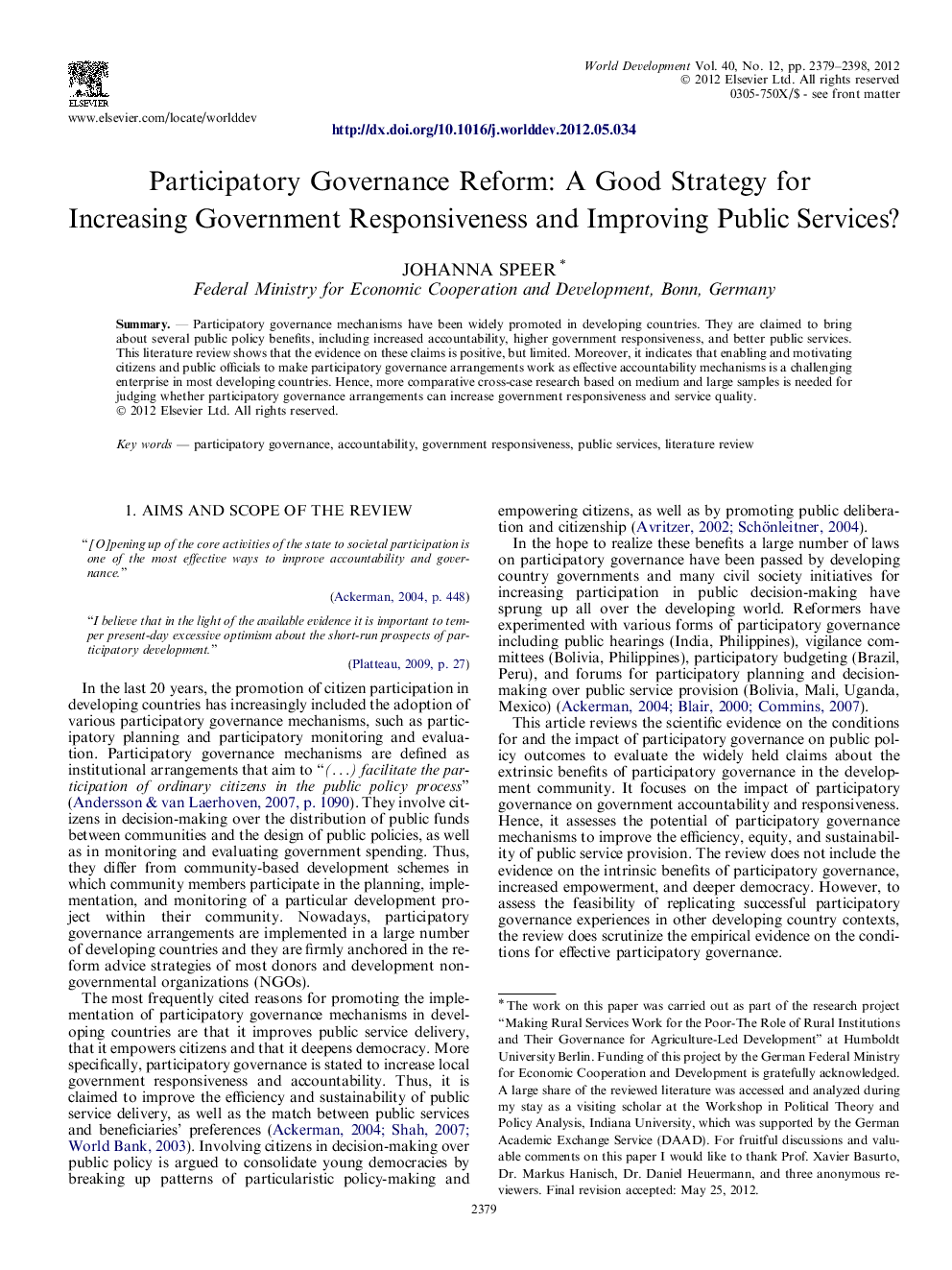| Article ID | Journal | Published Year | Pages | File Type |
|---|---|---|---|---|
| 991867 | World Development | 2012 | 20 Pages |
SummaryParticipatory governance mechanisms have been widely promoted in developing countries. They are claimed to bring about several public policy benefits, including increased accountability, higher government responsiveness, and better public services. This literature review shows that the evidence on these claims is positive, but limited. Moreover, it indicates that enabling and motivating citizens and public officials to make participatory governance arrangements work as effective accountability mechanisms is a challenging enterprise in most developing countries. Hence, more comparative cross-case research based on medium and large samples is needed for judging whether participatory governance arrangements can increase government responsiveness and service quality.
► Participatory governance is claimed to lead to responsiveness and good services. ► The evidence on this causal link is positive, but still limited in scope and method. ► Implementing participatory governance in developing countries is challenging. ► More cross-case research is needed on the benefits of participatory governance.
